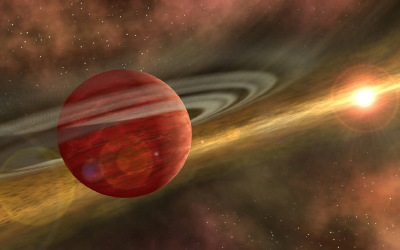Take part in the live debate on the evening of 9th March, online or in person at University College London! A public engagement event hosted by the Centre for Planetary Sciences at UCL/Birkbeck as part of Mars Week 2023.
Planet of the week, Mars, will be pitched against Guest Planet Jupiter’s icy moon, Europa, in a lively debate on one of the hot topics in astrobiology and planetary science: 'Where is the best place to search for life beyond Earth?'.
Our experts will try to convince you of the case for Team Mars or Team Europa. Join the ‘Mars Week Debate’ live in person at UCL or online to put your questions to the panels, before casting your vote for Mars or Europa. May the best Team win!
Introducing our experts...
Prof Andrew Coates
Andrew Coates is Deputy Director (Solar System) and Professor of Physics at UCL’s Mullard Space Science Laboratory (MSSL). He gained a BSc in Physics from the University of Manchester Institute of Science and Technology (UMIST), and an MSc and DPhil in plasma physics from Oxford University. Andrew’s space mission involvements include the Rosalind Franklin (ExoMars) rover where he leads the PanCam team; Perseverance where he is a co-investigator on Mastcam-Z; Cassini, where he leads the electron spectrometer team (part of the Cassini Plasma Spectrometer); Venus Express, Mars Express, Beagle 2 and Giotto. His scientific interests include the solar wind interaction with planets and comets, planetary surfaces and space instrumentation. He has authored and co-authored over 550 publications and is currently a member of the UK Science and Technology Facilities Council (STFC) Science Board. He is active in space and science outreach and is Vice President of the Society for Popular Astronomy.
Prof Ian Crawford
Ian Crawford is Professor of Planetary Science and Astrobiology at Birkbeck, University of London. His research activities mostly lie in the fields of planetary science, especially lunar science and exploration, and astrobiology, the search for life in the Universe. He has long had an interest in the future of space exploration and is convinced that space exploration and development will prove to be of central importance for the future of humanity. He is the author of over 200 peer-reviewed research papers in the fields of astronomy, planetary science, astrobiology and space exploration. In 2021, Ian was awarded the Royal Astronomical Society's Service Award for Geophysics; the citation refers to his long-standing promotion of lunar science and human space exploration, his role as a mentor for young planetary scientists, and other contributions to the planetary science community.
Dr Mark Fox-Powell
Mark Fox-Powell is a research fellow within the AstrobiologyOU group at the Open University, UK. He is deeply motivated to understand how rare or common life might be in the universe, which has led him to develop a keen fascination with the ocean-bearing icy moons of the outer solar system, which may be habitable today. Mark completed a PhD in Astrobiology at the University of Edinburgh and worked as a postdoctoral fellow at the University of St Andrews between 2016 and 2019, before joining the OU in February 2020. Mark’s research focuses on how material delivered to the surface by 'cryovolcanism' can be used to learn about the oceans far below. He combines experimental approaches in the laboratory with field expeditions to natural ‘analogue’ environments in Earth’s polar regions to support current and future missions to the icy moons such as the Europa Clipper (NASA) and the JUpiter Icy Moons Explorer (ESA).
Dr Rachael Hamp
Rachael Hamp is a postdoctoral research assistant within the AstrobiologyOU group at the Open University, having recently completed her PhD last year in planetary geochemistry. She studies the water-rock interaction on icy moons through both modelling and laboratory simulations. Her focus is to determine the ocean composition and potential geochemical cycles that may be occurring within the interior of these icy bodies. Understanding the chemistry of these global oceans is important to assess their potential to harbour life and identify potential energy sources that life could utilise, and will provide as a good reference for what future icy moon missions should search for.
Catherine Regan
Catherine Regan is a PhD student at the UCL Mullard Space Science Laboratory studying the planetary induced magnetosphere of Mars. Her background is in Environmental Geophysics, starting university focussed on Earth Sciences before realising she could apply this knowledge to other planets. She now uses the Mars Express satellite to investigate how dust storms on Mars influence magnetic boundaries in the Martian environment. Alongside her PhD she is a passionate science communicator, having created the project Eyes on Mars which aims to raise awareness of UK based Mars Exploration, and working as the chair of the outreach working group at MSSL where she hopes to showcase the large number of opportunities available in the space sector.
Grace Richards
Grace Richards is a third year PhD researcher in the School of Physical Sciences and the AstrobiologyOU group at the Open University, UK. The title of her thesis is “The feasibility of in situ VOC analysis on icy moons”, with her project focusing on the icy surface of Enceladus, and whether or not it is possible to differentiate between surface processes by analysing the ice. She has built a cryogenic vacuum system to replicate the Enceladus surface environment and grow ice analogues. She is also working with the Light Gas Gun to simulate impacts from grains in Saturn's E-ring on the ice analogues. Her main interests are the habitability of icy moons, space instrumentation, the identification and detection of biomarkers, and space weathering. Grace is an avid science communicator and is currently working with AstrobiologyOU on creating educational videos about astrobiology and planetary science for schools and science festivals.
Dr Andrew Rushby
Andrew Rushby is a Lecturer in Astrobiology at Birkbeck/UCL-CPS. Andrew’s interest in the climates of newly discovered exoplanets, particularly small and rocky worlds, started during graduate studies at the University of East Anglia, which was followed by postdoctoral fellowships at NASA Ames Research Center and the University of California, Irvine. Andrew has joined Birkbeck/UCL-CPS to continue his research into the habitability of small planets outside of our Solar System, and to develop a new postgraduate degree in Astrobiology, launching in October 2023, which will be one of the first of its kind in the UK. Andrew is also a passionate science communicator. He co-hosts the Exocast podcast, which discusses all things related to exoplanetary science and astrobiology.
Links
The 'Mars Vs Europa' Debate, is one of various events taking place as part of Mars Week 2023.Register for Mars Day 2023 to hear more about Mars week events:
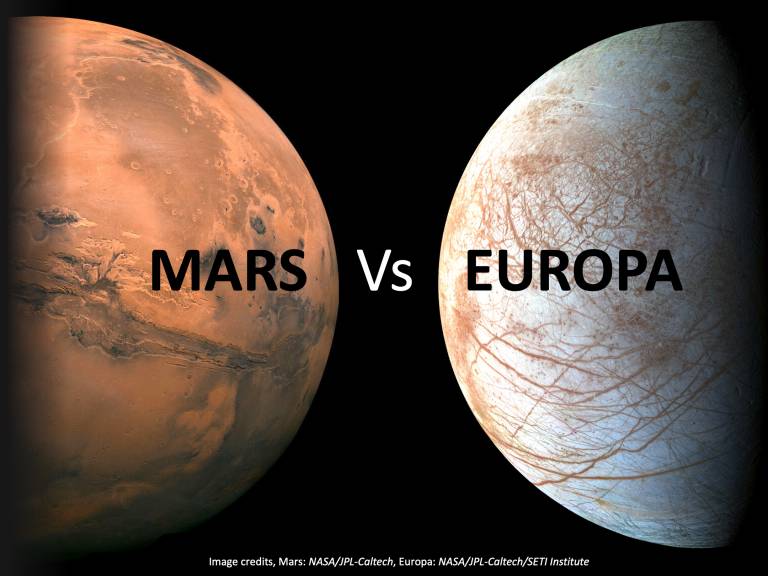
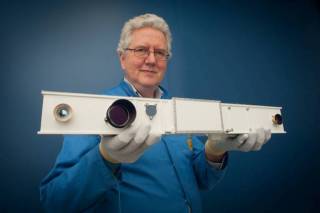
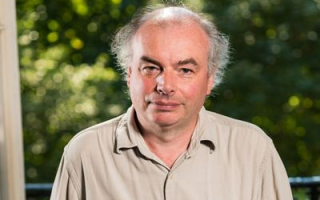
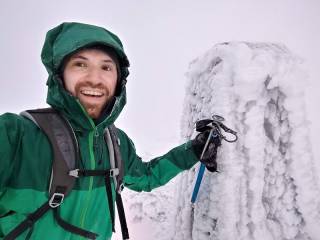
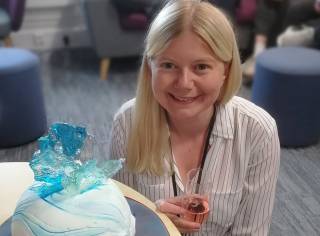
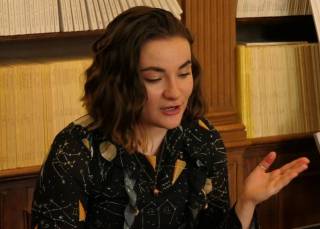
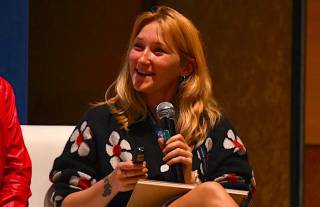
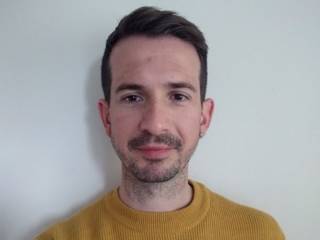
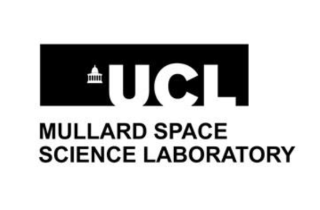

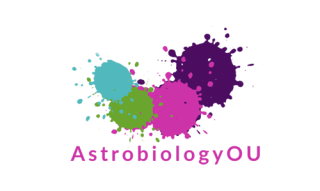
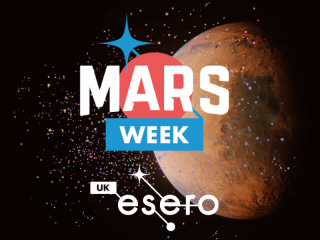
 Close
Close


